Primary years programme (Grades 1 to 5)
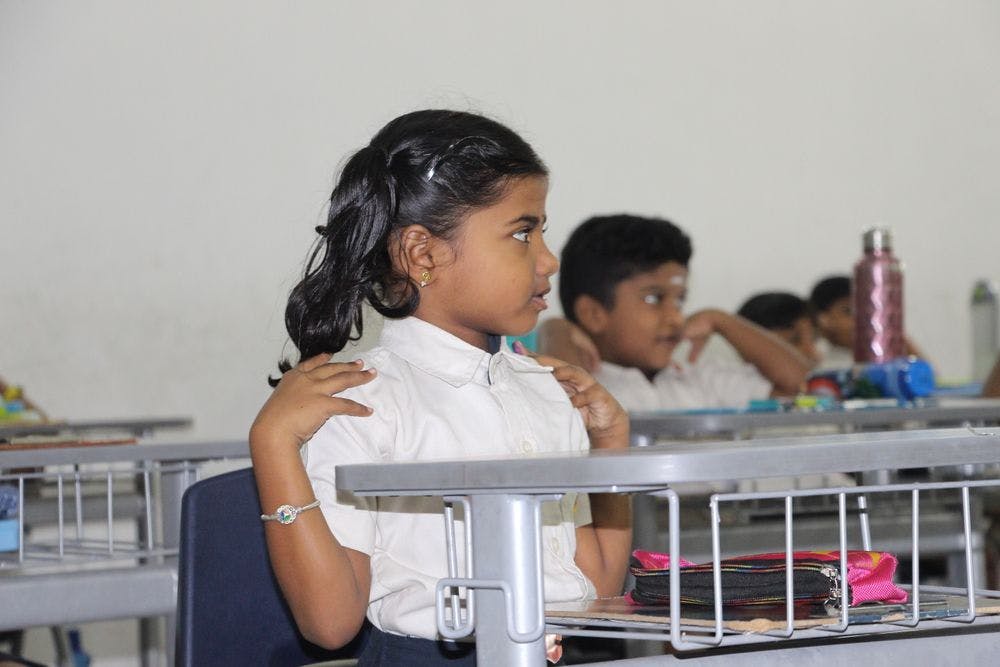
What will your child learn at our school?
During the primary years, children go through a phase of dynamic learning as they experience rapid intellectual growth and develop rational thinking abilities. Dynamic learning is interactive, engaging, and makes learning come alive.
Our Grade I pupils at our Montessori establishment are fully equipped, both physically and emotionally, with strong social and cognitive abilities. They are more than ready to start their primary education journey with ease, thanks to our teachers who make sure the transition is seamless.
Our curriculum is designed to be a transformative experience for both students and teachers alike, with challenging, engaging, and relevant learning opportunities that lead to outstanding results. We use a Dynamic Cycle of Learning approach in the classroom, which creates a shared understanding between teachers and students about the learning process. This is a flexible method that places a strong emphasis on explicit teaching.
Guided by global learning strands, our students will have the chance to experience inquiry-based learning, dialogic teaching, connecting concepts, reflective education, critical thinking, and value-based education. This approach encourages a love for learning and helps pupils become lifelong learners.
Teachers assess student progress on a regular basis and meet with parents three times a year to discuss progress reports. This feedback is documented in our Holistic Student Assessment Report, which forms the basis for constructive interactions between teachers and parents.
Our programme incorporates a range of subjects, including language arts, mathematics, science, social studies, and the arts. We believe that a well-rounded education is essential for students to develop critical thinking, problem-solving, communication, and collaboration skills that are necessary for success in the 21st century.
At Aadhithya International Public Schools, we understand that every student is unique, and we strive to create a learning environment that caters to the diverse needs and interests of our students. Our programme includes opportunities for student voice and choice, project-based learning, and interdisciplinary units that promote student engagement and learning.
We also prioritize parental involvement and communication, and we encourage parents to be active partners in their child's learning journey. We provide regular updates and feedback to parents on their child's progress and encourage them to participate in school activities and events.
The Curriculum
Our pupils study a wide range of subjects including English, Tamil as a second language, Hindi as a third language, Science, Maths, Social and Environmental studies.
To help them with their learning journey, we use a combination of traditional methods such as worksheets, classwork, homework and assessments to strengthen memory, reflective and critical thinking skills. Additionally, we use differentiated learning methods such as storytelling, drama, dance, artwork, audio, videos and learning centers in the classroom to foster inquiry, conceptual understanding, and values in students.
The school utilises IGCSE and ICSE textbooks and resources to establish a solid base of knowledge for students, preparing them to excel on international examinations, at university and in the wider world.
Curriculum goals
Language
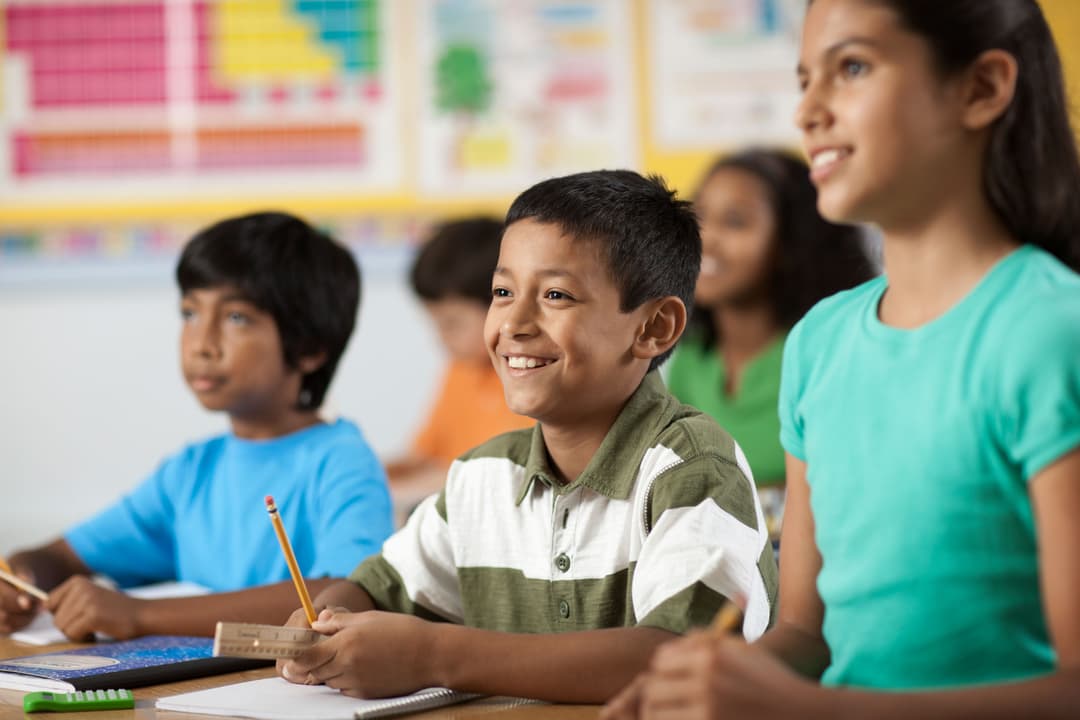
Learning a language(s) supports and enhances thinking and understanding. Students listen to and use language with their peers and teachers in their everyday lives, thus growing their understanding of how language works. Through the primary years' language program, students will be able to:
- Demonstrate an appreciation for the importance of speaking and listening and explore a wide range of spoken language purposes. They will adhere to conventions while speaking and learn to use the language appropriately for different purposes.
- Understand, explore, use and create visual language or imagery to convey factual information or imaginary stories.
- Develop an understanding of context and the fact that different texts convey different meanings.
- Establish reading routines and choose books to read based on their preferences or interests.
- Understand that writing has a purpose and can generate a variety of responses from readers.
- Demonstrate an understanding of the structure of fiction and non-fiction writing.
- Understand and apply conventions pertaining to writing.
- Develop the ability to understand and use language in a variety of contexts, such as academic, social, and cultural.
- Gain the ability to communicate effectively in both written and spoken forms, expressing their thoughts and ideas clearly and coherently.
- Develop the ability to appreciate and understand different cultures, perspectives and languages.
- Develop a lifelong love for learning and reading.
Mathematics
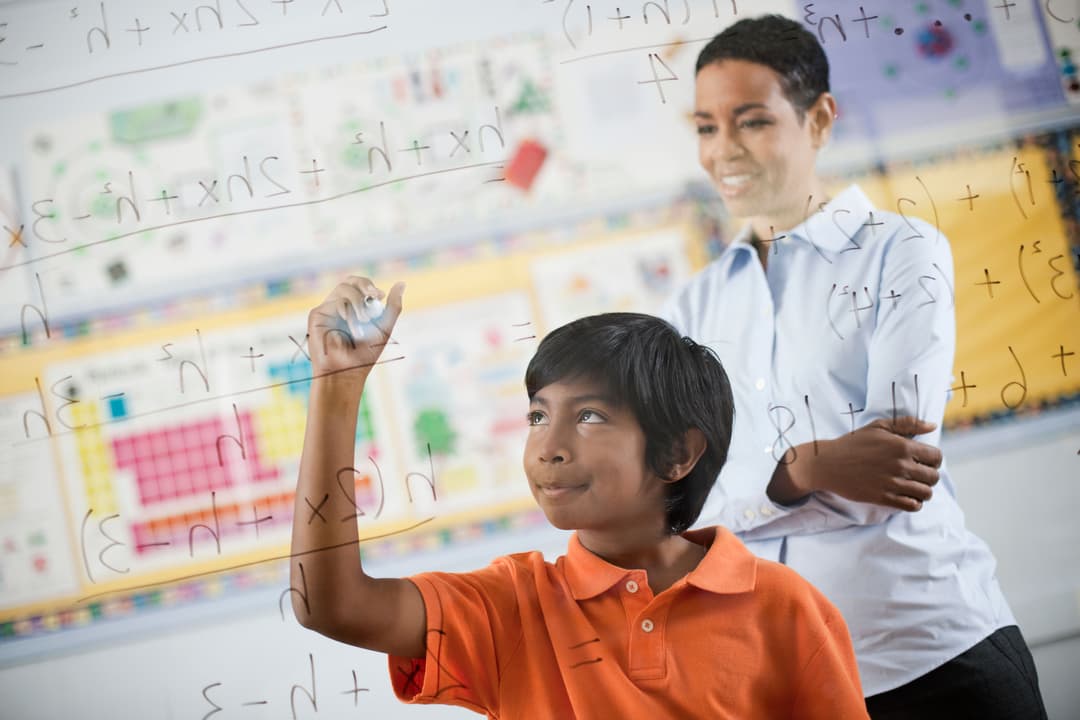
Students acquire mathematical understanding by constructing their own meaning through real-life examples and gradually move to higher levels of abstraction with math concepts. They understand that mathematics helps in analyzing the world around them and becomes an effective tool for solving problems. Through the primary mathematics program, students will be able to:
- Understand, collect, interpret, and organize data in the form of pictographs, tally marks, and graphs to make inferences.
- Understand and apply measurement in the context of evaluating objects or events involving length, mass, capacity, money, and time.
- Learn to use decimals and fractions appropriately to measure accurately.
- Measure and construct angles.
- Understand and explore the patterns that exist with numbers – the relationship between addition and subtraction and the associative and commutative properties of addition.
- Understand that patterns can be represented and analyzed using algebraic equations and functions.
- Understand and apply the ordering of place values, fractions, and decimals.
- Use mental and written strategies to solve problems involving whole numbers, fractions, and decimals.
- Develop the ability to reason logically and quantitatively.
- Develop the ability to interpret, analyze and evaluate mathematical information.
- Develop the ability to apply mathematical concepts and methods to solve real-world problems and make informed decisions.
- Develop the ability to communicate mathematical ideas effectively using appropriate mathematical language and notation.
Science
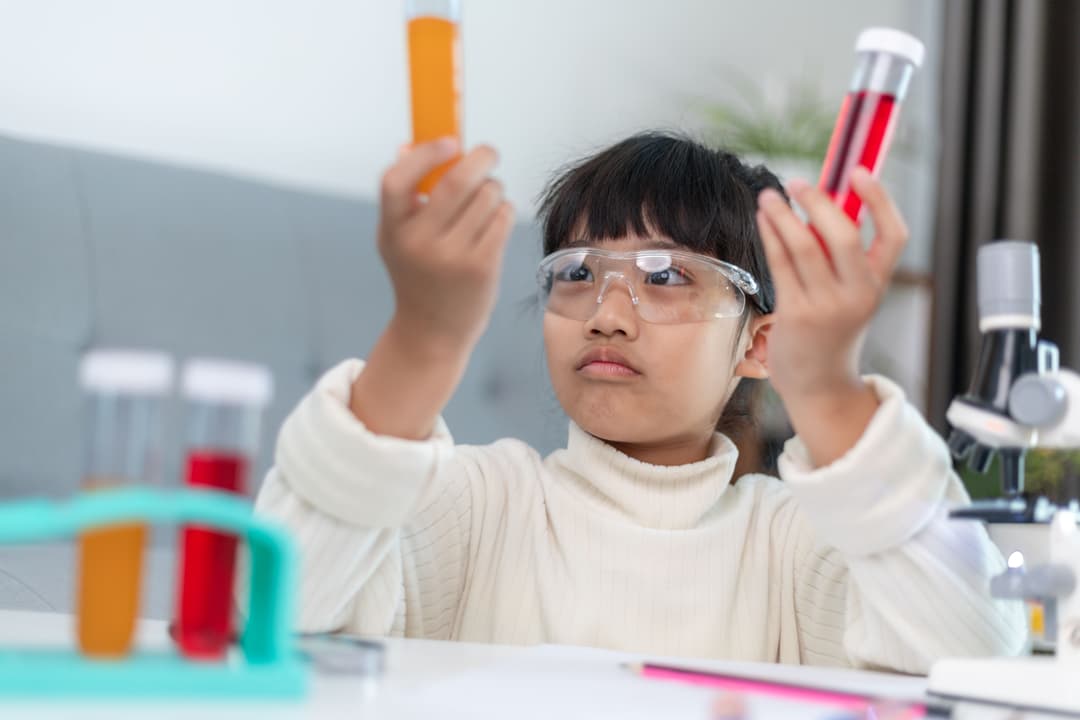
Students begin to explicitly understand the physical, chemical, and biological aspects of the natural world. Continuous reflection on scientific knowledge supports students' understanding that science is constantly changing and evolving and develops a sense of responsibility that our actions have an impact on us and the world around us.
The knowledge component is organized based on the global common science strands - Living things, Earth and Space, Materials and matter, and Force and energy. Conceptual understanding happens through open-ended and key questions depending on key concepts like form, function, cause and effect, change, and connection, perspective and responsibility. Skill progression occurs naturally through developmentally appropriate units and topics. The broader skill acquisition of the science program through the primary years encompasses students being able to:
- Explore living things and objects to find out more about them.
- Observe and manipulate objects and living things enhancing their five senses.
- Observe, record changes, and make comparisons of living things, materials, and events over a period of time.
- Use standard and non-standard measuring tools to evaluate mass, weight, and temperature.
- Use scientific vocabulary to explain and describe simple features of objects and events.
- Show curiosity in understanding the world around them by posing intriguing questions.
- Use scientific principles to suggest possible solutions and solve problems.
- Make predictions and suggest what could happen next in structured situations.
- Express and share understanding, formally and informally by illustrating simple diagrams and written text, mind maps, and concept maps.
- Apply scientific knowledge to enhance their understanding of the physical, chemical and biological aspects of the world.
- Develop the ability to think critically and creatively about scientific questions and problems.
- Develop the ability to design, carry out and evaluate scientific investigations.
- Develop the ability to use mathematical and computational thinking in the context of science.
- Develop the ability to use scientific evidence to construct explanations and make predictions.
Social Studies
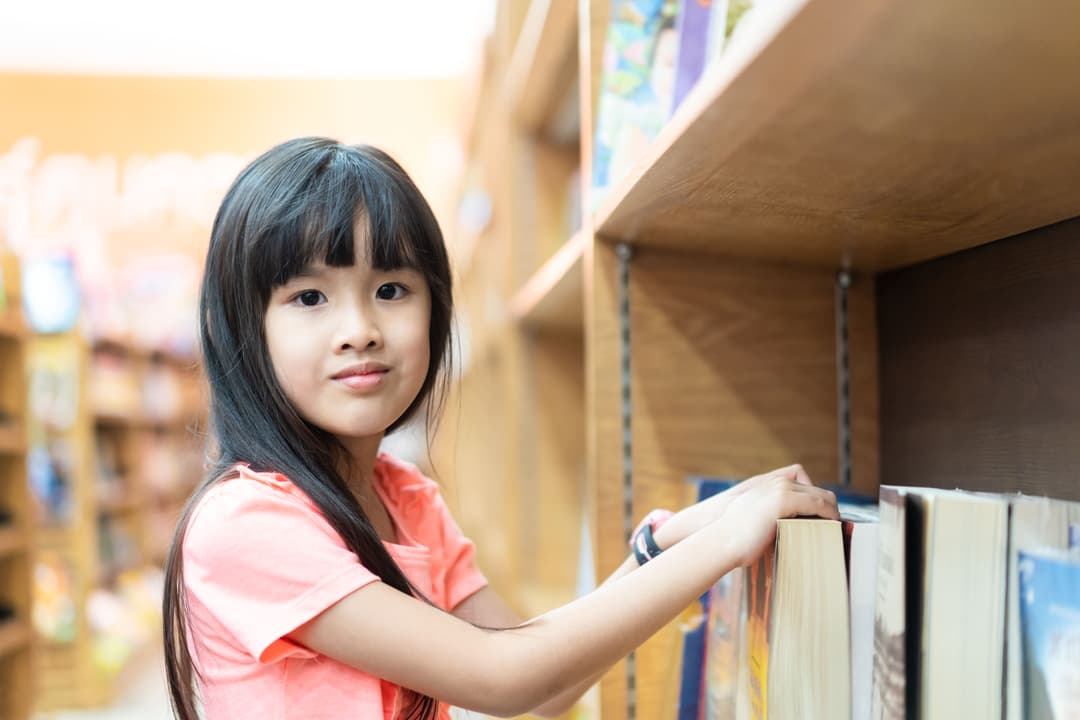
The social studies component is characterized by information, concepts, and skills rather than content. Learning social studies aids students towards a deeper understanding of self, relationships, and society. It provides a broader scope for students to understand human behavior realistically and with sensitivity.
Familiarizing the learner with the dynamics of the evolutionary process helps in developing a sense of awareness and eventually becoming open to perspectives of values and problem-solving. Understanding various geographical, historical, economic, and political factors makes them appreciative and tolerant towards diversity. The social studies program at the primary level prepares students to be able to:
- Demonstrate understanding of time periods of family, school, and community life.
- Examine the past by investigating artifacts.
- Understand different cultures and their impact on people and their society.
- Use maps and spatial thinking to access information.
- Use appropriate vocabulary to describe people, locations, and the environment.
- Understand and analyze cooperation, collaboration, and conflict and their impact.
- Understand and explain how human actions can progressively or destructively impact self and society.
- Apply geographical knowledge to interpret the past, understand the present, and plan for an inclusive and better future.
- Explain the structures of state and central government.
- Understand why rules are created and analyze
